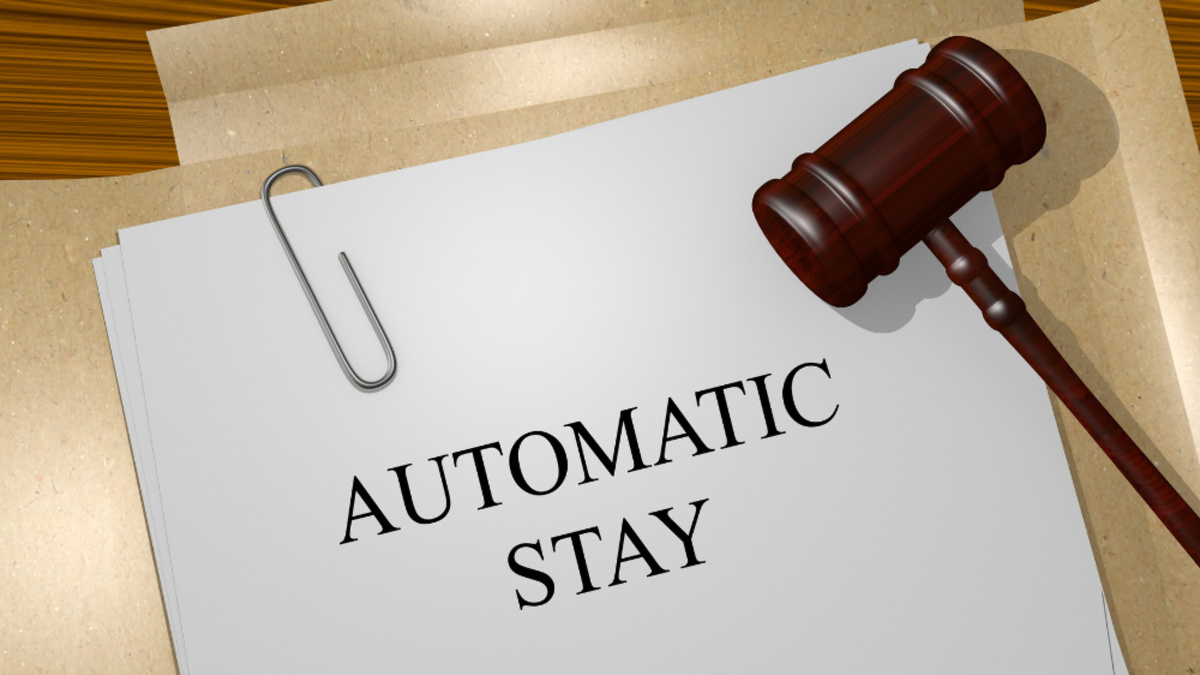What is an Automatic Stay and How Can It Protect You?

Joy Wallet is advertiser-supported: we may earn compensation from the products and offers mentioned in this article. However, any expressed opinions are our own and aren't influenced by compensation. To read our full disclosure, click here.
What is an automatic stay?
- Chapter 7 bankruptcy: This type of bankruptcy will discharge your unsecured debts like credit card debt and medical bills.
- Chapter 13 bankruptcy: Think of a Chapter 13 filing as more of a rehabilitation plan. No debts are discharged, but you're put on a plan to repay your creditors over the next three to five years.
- Relieve $25k+ in credit card debt or personal loan debt with this special relief program.
- TurboDebt has a Trustpilot rating of 5/5 based on 1288 reviews
- Subject to qualification and approval. $1,500 monthly income required.
- Apply in 5 minutes. If you qualify, chat online with a friendly online debt representative.
What does an automatic stay do?
- Continuing attempts to collect the debt
- Garnishing the debtor's wages
- Foreclosing on the debtor's property
- Stopping payments to the trustee appointed in the bankruptcy case
- Going after the debtor's non-exempt assets
- Removing or taking possession of debtor's personal property
- Conducting eviction proceedings
- Placing a lien on real estate
- Levying on the debtor's bank account
- Charging interest on past-due amounts
- Selling personal property
- Performing credit checks
Stops collection efforts
No wage garnishment
Protects rights
- Relieve $25k+ in credit card debt or personal loan debt with this special relief program.
- TurboDebt has a Trustpilot rating of 5/5 based on 1288 reviews
- Subject to qualification and approval. $1,500 monthly income required.
- Apply in 5 minutes. If you qualify, chat online with a friendly online debt representative.
How does an automatic stay work?
- An action to recover taxes.
- An action by the trustee to recover fraudulent conveyances made by the debtor.
- The enforcement of a judgment obtained before the commencement of the case under applicable non-bankruptcy law.
- Certain criminal proceedings against the debtor.
How long does an automatic stay last?
- Relieve $25k+ in credit card debt or personal loan debt with this special relief program.
- TurboDebt has a Trustpilot rating of 5/5 based on 1288 reviews
- Subject to qualification and approval. $1,500 monthly income required.
- Apply in 5 minutes. If you qualify, chat online with a friendly online debt representative.
The bottom line
Joy Wallet is an independent publisher and comparison service, not an investment advisor, financial advisor, loan broker, insurance producer, or insurance broker. Its articles, interactive tools and other content are provided to you for free, as self-help tools and for informational purposes only. They are not intended to provide investment advice. Joy Wallet does not and cannot guarantee the accuracy or applicability of any information in regard to your individual circumstances. We encourage you to seek personalized advice from qualified professionals regarding specific investment issues. Featured estimates are based on past market performance, and past performance is not a guarantee of future performance.
Our site doesn’t feature every company or financial product available on the market. We are compensated by our partners, which may influence which products we review and write about (and where those products appear on our site), but it in no way affects our recommendations or advice. Our editorials are grounded on independent research. Our partners cannot pay us to guarantee favorable reviews of their products or services.
We value your privacy. We work with trusted partners to provide relevant advertising based on information about your use of Joy Wallet’s and third-party websites and applications. This includes, but is not limited to, sharing information about your web browsing activities with Meta (Facebook) and Google. All of the web browsing information that is shared is anonymized. To learn more, click on our Privacy Policy link.
Images appearing across JoyWallet are courtesy of shutterstock.com.
Jasir Jawaid is Joy Wallet's Assistant Editor. He has more than 13 years of experience as a journalist covering Wall Street, equities, financial policy and regulation, and cryptocurrency and blockchain.









